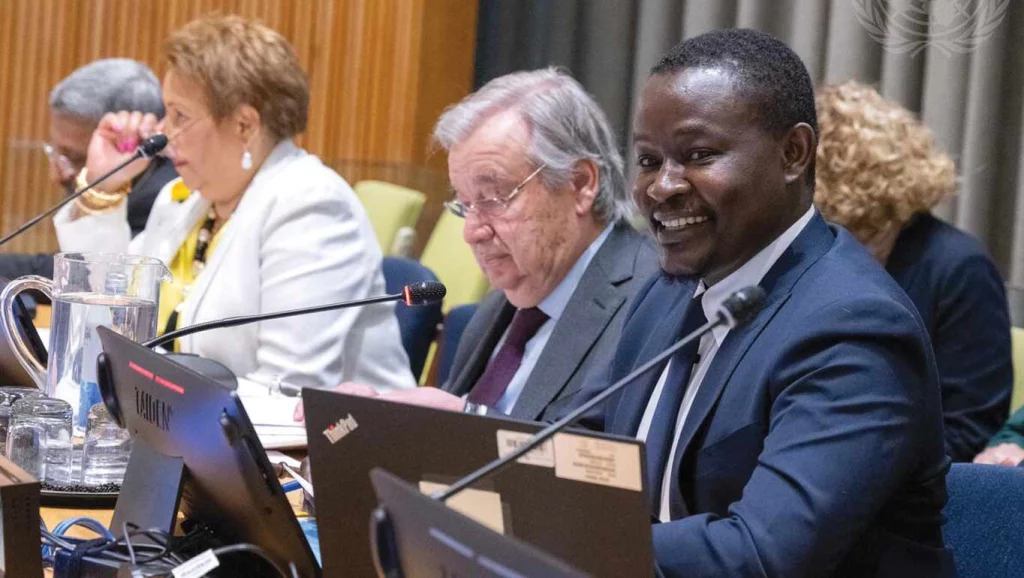“Experience matters when you deal with budgetary and administrative issues, particularly in the context of the UN,” asserted Mr. Abdallah Bachar Bong. He currently chairs the Advisory Committee on Administrative and Budgetary Questions (ACABQ), a subsidiary organ of the General Assembly that is tasked with examining the budget submitted by the Secretary General as well as advising the Assembly on administrative and financial matters referred to it. The committee is comprised of 21 independent experts, elected by the General Assembly for three years, based on a broad geographical representation. Few people get to understand the inner workings of the United Nations like these 21 financial experts.

The ACABQ meets over 43 weeks during the fall, winter, and spring. Throughout these sessions, the members of the ACABQ pour over budget proposals presented by the Secretary General to advise the General Assembly on administrative and budgetary questions, including those related to the specialized agencies as well as propose financial arrangements.
It is a gargantuan task. The UN’s programme budget includes 36 sections, comprising departments, sections, regional commissions, and some entities such as UN Women, the United Nations Environment Programme, and the Office of the High Commissioner for Human Rights, as well as other related programmes. Additionally, the organization has a separate budget for peacekeeping activities. The ACABQ is in charge of examining post and non-post resource requirements for all of it. Mr Bong explains, “as a committee, we seek efficiency. We look at the workload, performance, and analyze the budget based on the information provided.”
With the information compiled, the members of the ACABQ draft a report on the Secretary General’s proposed programme budget, which is then formally introduced for consideration to the Fifth Committee of the General Assembly. Afterwards, the member states proceed to negotiate. The Fifth Committee is free to accept, modify, or disregard the recommendations contained in the ACABQ’s report. Mr. Bong highlighted the difference between the ACABQ and the Fifth Committee: “We are a technical body. The Fifth Committee, because of the group negotiations, has many political dimensions to it. Hence, as a committee of experts, we [the ACABQ] leave them the space to negotiate. Whatever they decide, the Secretariat must implement, and then we follow-up next year.” Besides the formal presentation of the report, the chair of the ACABQ must also meet with the bureau of the Fifth Committee to discuss planning and coordination among the two bodies. This makes it possible to approve the UN’s budgets on a tight deadline: July 30th for the peacekeeping budget and late December for the programme budget.
It is hard to overstate the impact that this annual exercise has on mandate delivery and working conditions of staff, particularly those assigned to the field. “I think, generally, when you are away from New York, you may not see all the dimensions of the budget process,” reflected Mr. Bong. However, he goes on to add: “Colleagues in the field are really the ones who are implementing the whole UN agenda and mandates, and they are close to the reality on the ground.” Therefore mandate delivery is a critical component of the ACABQ’s work. “For us, the mandate comes first,” summarized Mr. Bong.
In fact, he is keen to remark that the committee’s programme of work is “driven by the requirements of the General Assembly.” The budget generally remains consistent in terms of topics and sections. Sometimes, additions are introduced, such as the new office in charge of data privacy or the Office for the Secretary General’s Envoy on Youth. Moreover, the General Assembly may request further reviews that have an impact on departmental budgets and staffing. “The General Assembly decided last year to have a spending review every 5 years,” explained Mr. Bong. “This means post and non-post resources. What are the efficiencies? Are there some obsolete mandates? Where do we have the possibility to better implement mandates?”
Mr. Bong believes that the current context offers a myriad of opportunities for the UN to work more efficiently. “We feel there might be room for a review of mandates, in general terms, for the sake of efficiency. The culture of efficiency should come from the Secretariat. The Secretariat is here to help and support the member states.
We all want a fit for purpose Secretariat,” he pointed out. Mr. Bong cited the post-COVID landscape, technology, mobility, and training as opportunities that can improve productivity. “The most important aspect is productivity,” he said. “If we can measure productivity at the individual level, I think we should. There are many situations that need to be taken into consideration, and I think it is only fair. The wellbeing of the staff is critical.” This is a responsibility that Mr. Bong does not take lightly. In his work as chair of the ACABQ, the needs of the United Nations are always at the forefront: “We are here for the staff, the organization, and the Member States. We just want the best, and we will do everything possible on our side to contribute.”



